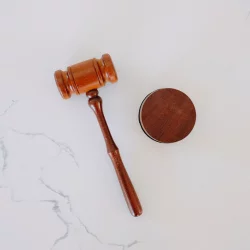Is Solitary Confinement Legal for a Juvenile and if so Is Four Years in Solitary Excessive?
To many people the idea of being confined, away from other people and with just your own thoughts is bliss. After all, we all lead busy lives and a few moments of peace are hard to find.
But, while this might be nice for a short period this is not the same as solitary confinement inside a prison.
When you’re inside solitary confinement consists of being trapped in one small room for between 22 and 24 hours of the day. Your only human contact is occasional; with the prison staff.
Inmates are usually placed in solitary as a punishment although sometimes it is deemed necessary for their own protection. The system was first introduced in the US in 1829 at the Eastern State Penitentiary in Philadelphia.
Is Solitary Confinement Legal?
The aim of any good Los Angeles Criminal Attorney is to prove their client is innocent. However, this is not always the case and you’ll find many lawyers are considering the issues of solitary confinement and other conditions in prisons. In fact it’s often a hot topic in the media.
The current system states that solitary confinement is legal for juveniles. This is because they are treated as being responsible for their actions both in and out of the prison.
If they misbehave then they will all be punished in the same way. This includes the use of solitary confinement.
It is important to note that if the juvenile has been tried as an adult then adult rules apply. In this case they can be kept in solitary for months or even years.
But, if they have been tried as a juvenile then new rules have come into force which restricts the amount of time they can spend in solitary.
The new rules state that every inmate should be allowed out of their cells for at least 8 hours every day. Although they can be kept in solitary this cannot be just in their cell, they must have contact with the prison staff during this time if they are not allowed to mix with the other inmates.
Why 4 Years Is Too Long
The new rules have not set a definitive timescale for how long a juvenile can be kept in solitary confinement. However, there is an excellent reason why 4 years is simply too long.
Being by yourself for an extended period of time is likely to lead to depression and potential mental instability. This is at a time when the juvenile is most vulnerable to environmental factors as they are still developing.
This is why the courts and the prisons are gradually moving away from solitary confinement as anything but a very short term punishment and why juveniles should never be kept in solitary for extended periods of time.
Of course, there remains an issue for those that are placed in solitary to protect them from the other inmates, but new measures are being discussed and reviewed to resolve even this issue.
More to Read:
Previous Posts:



